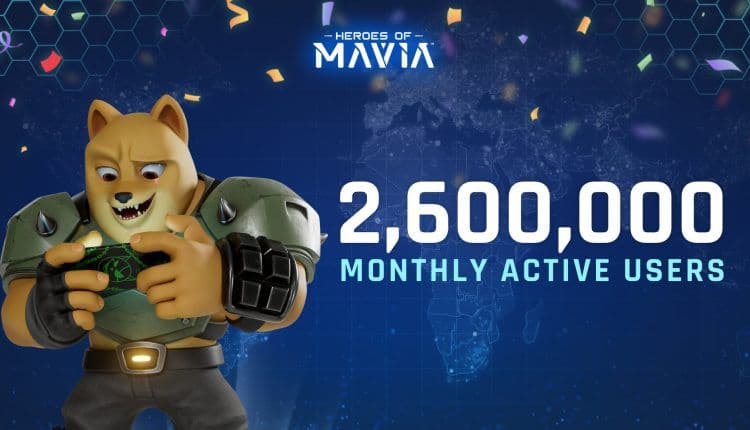In the evolving realm of blockchain gaming, Pixels, the popular web3 browser-based social farming game, has achieved several significant milestones since its debut on the Ronin Network in November 2023. Pixels has steadily expanded its reach, propelled by innovative initiatives such as play-to-airdrop events and strategic collaborations with industry giants like Mocaverse and Yield Guild Gaming.
The Pixels team has announced that they have hit two million lifetime wallets registered on the Ronin blockchain, with over 1.1 million active players. This development signifies a notable increase in the web3 gaming sector, marked by consistent growth in daily and monthly active users. In this article, we will cover all the latest updates, and how with general crypto sentiment rising, the visibility of gaming projects, many of which are successfully launching tokens, is driving up sector activity.
Pixels Explosive Metrics
Originally developed on the Ethereum sidechain network Polygon, Pixels migrated to Ronin in late 2023, contributing to a surge in user activity. Developed by Sky Mavis, the visionary mind behind Axie Infinity, Ronin is a blockchain designed to enhance the gaming experience. Ronin also hosts projects like Wild Forest, The Machines Arena, Apeiron, and more.
Pixels has showcased sustained success since its migration. Recent data from an open dashboard reveals that Pixels has amassed over 1.1 million total unique wallets on the Ronin Network. The game boasts an impressive 320,000 daily active user wallets (DAUWs), including 275,000 retained users and 25,000 new users.
The influx of new users combined with a high retention rate positions Pixels as a game with sustainable growth, moving beyond speculative trends and hype prevalent in the web3 gaming space.
Pixels CEO Luke Barwikowski underscores the importance of user retention and token utility in a recent post on X (formerly Twitter), answering pressing questions such as: "Is Pixels retaining users? What are players doing with $PIXEL? How will Pixels acquire new users? We aim to be a significant player in web3 gaming."
Simultaneously, Ronin Network has experienced a surge in popularity, boasting over 2 million monthly active unique wallets, part of which is driven by Pixel players' interest in planting seeds, acquiring pets, and pursuing $PIXEL rewards.
Following its launch on Binance on February 19th, the $PIXEL token swiftly ascended the ranks, now valued among the top 200 cryptocurrencies globally, with a market cap of $440 million. Pixels' strategic integration of gameplay mechanics, user engagement, and token utility has positioned it as a notable player in the web3 gaming revolution.
Web3 Gaming Goes Mainstream
A relevant comparison can be drawn with Heroes of Mavia, a mobile strategy game claiming over 2.6 million monthly active users (MAUs) and a 230% increase in the $MAVIA token since its February launch. It's worth noting that Heroes of Mavia currently operates as a free-to-play game without blockchain integration, with plans for web3 implementation in the future.
The game quickly gained momentum within the first week, surpassing expectations by achieving over 1 million downloads across both Android and iOS platforms. Skrice Studios now proudly asserts that Heroes of Mavia has outpaced its competitors, exceeding the user base of the mobile football game NFL Rivals.

Pixels Hits 2 Million Wallets on Ronin
The most recent data from DappRadar and Footprint Analytics reveals that Pixels has surpassed the coveted threshold of two million lifetime wallets on Ronin, boasting an impressive daily active unique wallet count of approximately 625,000. This surge in adoption underscores the growing traction of blockchain gaming projects and their increasing appeal to enthusiasts worldwide.
While the rise in wallet activity signals a promising trend for the blockchain gaming sector, it's essential to consider potential nuances. Instances of automated bot wallets aiming to maximize token rewards can skew metrics related to wallet activity. Despite this caveat, the overall trajectory of the sector remains positive, as illustrated by a graph from Joel John's Decentralised Substack.
Beyond wallet metrics, the broader blockchain gaming ecosystem is experiencing unprecedented growth. The collective market capitalization of the top 33 blockchain gaming tokens, each valued at over $100 million, now stands at a staggering $20 billion. Immutable's IMX token leads the pack, commanding a market cap of $4.4 billion, indicative of the sector's robust performance.
Final Thoughts
As gaming intersects with blockchain technology, projects like Pixels are at the forefront, leveraging decentralized networks to redefine interactive entertainment. With momentum on their side and an expanding community of users, the future looks promising for blockchain gaming ventures, poised to shape the next generation of digital experiences.
